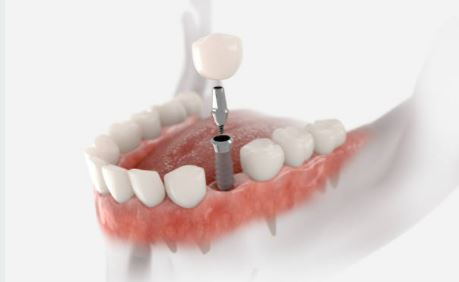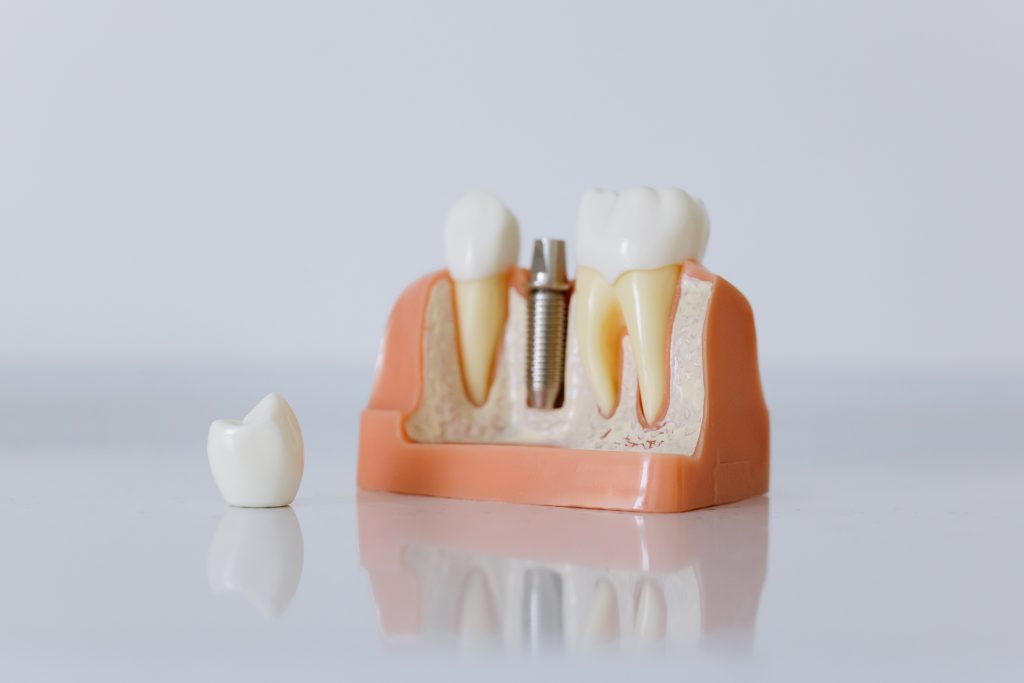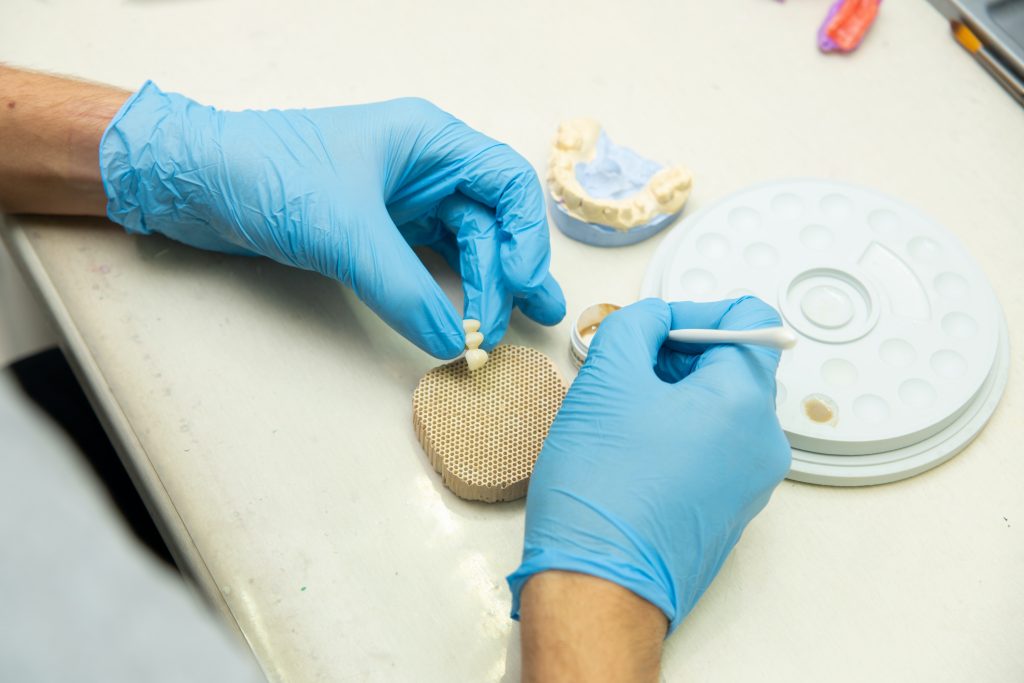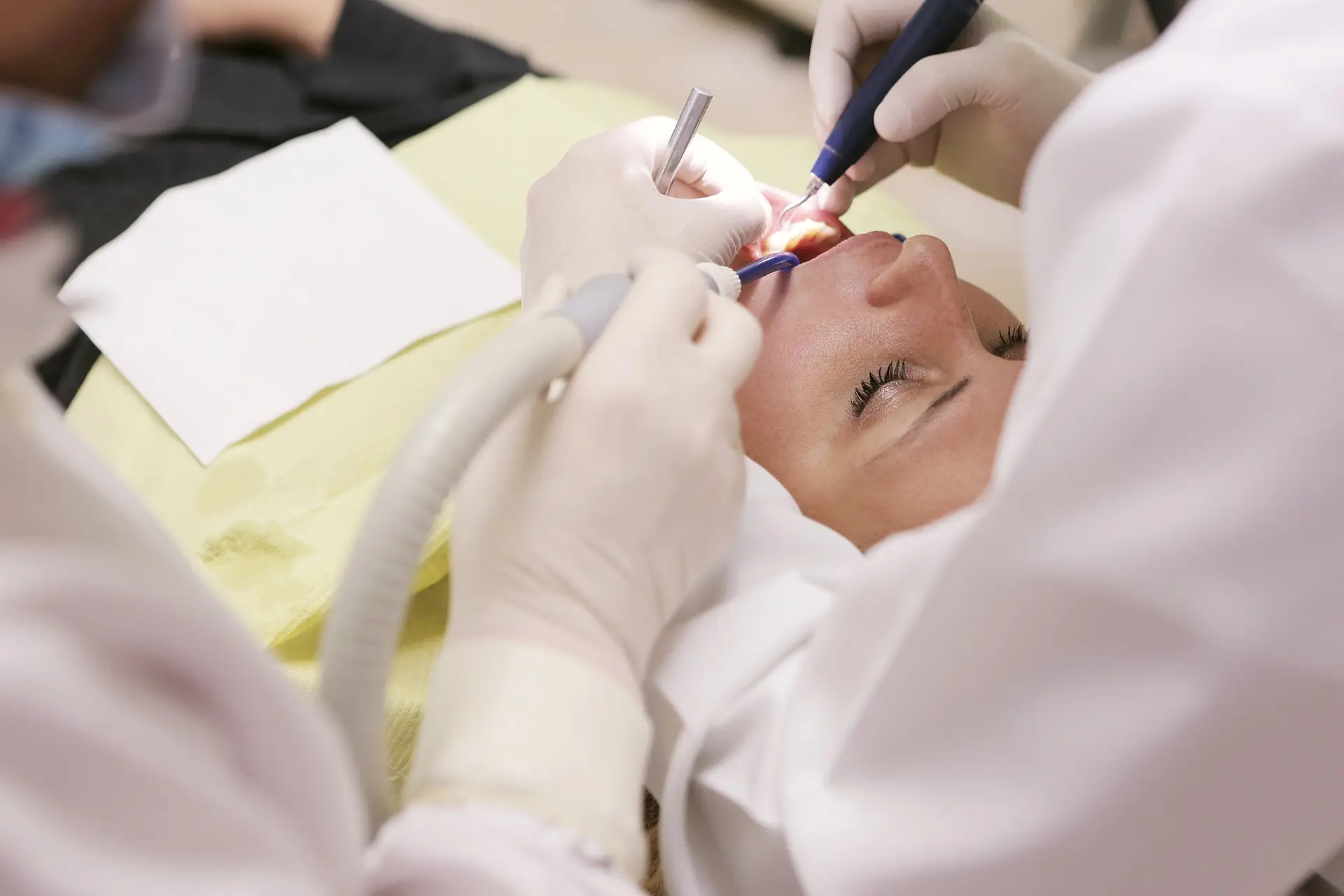You have several options for replacing missing teeth. One of which is the dental implant, which requires some consideration because it is a complex procedure. You may also have encountered the term abutment and you must be curious about the difference or the connection between an abutment and a dental implant.
Dental implants are replacement teeth that involve an artificial structure to be inserted into the person’s jawbone. So the dental implant acts as the anchor that is inserted into the jawbone so that the crown of the artificial tooth can be attached.
What does an abutment do?
What is Implant Abutment?

An abutment is a tiny connector piece made of metal that’s used to attach the dental implant to the crown.
When you lose a tooth, one of your options for replacement is to get a dental implant. A dental implant is a metal fixture (usually made of titanium) that is surgically inserted into the jawbone. This acts as a new root for the prosthetics or new tooth. The implant is then topped with a dental crown, which looks and functions just like a natural tooth.
For the dental implant to be successful, it must be properly anchored in the jawbone. This is where the abutment comes in.
The abutment is a small metal post that is surgically implanted into the jawbone along with the dental implant. Once the implant and abutment are in place, the dental crown can be attached to the abutment.
A tooth that’s supported by a dental implant has three parts:
- The dental implant. The foundation that will hold the entire tooth into the gums.
- The crown. This is the prosthetics or the actual tooth.
- The abutment. This is attached to the implant and what connects it to the tooth or crown.
The abutment helps to stabilize the dental implant and prevents it from shifting or moving. It also provides a surface on which the dental crown can be securely attached. without the abutment, the dental implant would not be able to function properly.
What is an Abutment Made Of?

Abutments for implants are usually made of titanium, which is a biocompatible metal that is well-tolerated by the body. Titanium is also very strong and durable, which makes it an ideal material for use in dental implants.
Aside from titanium, materials like gold or zirconia are also used. Zirconia is gaining popularity as it makes the abutment more invisible compared to titanium so it’s an excellent choice if you want to make your implants look as natural as possible.
How are Abutments Fitted?
Dental abutments are placed after the implant site has healed and the gum tissue has been allowed to grow back around the implant.
Once the abutment is in place, a dental prosthetic (such as a crown, bridge, or denture) can be attached to it.
If you’re getting an abutment, then you should know that they come in a variety of sizes and shapes, so it’s crucial to select the one that best fits the implant and prosthetic. Abutment screws also come in different lengths, so it is important to select the one that is long enough to secure the abutment to the implant.
If you are having a dental implant placed, your dentist will select the appropriate abutment and screw for you.
The Procedure of Getting an Implant Abutment
It is important to understand how an implant is attached to the abutment so that you know what happens during surgery and how you can take care of your implants properly.
For complex procedures like dental implants, your dentist may require you to follow a few things as preparation. Then your dentist will place the implant into your jawbone. Once the implant has healed and fused with the jawbone, the abutment can then be placed. The abutment placement surgery is typically done under local anesthesia and does not require a hospital stay.
After the abutment has been placed, your dentist will take impressions of your teeth. These impressions will be used to create a dental crown that will be matched to the color and shape of your natural teeth. The dental crown will then be attached to the abutment and you will have a new, healthy tooth in place of the one you lost.
If you’re considering dental implants, it is important to understand the role of the implant abutment. This small piece of hardware can make a big difference in terms of the success of your dental implants. Make sure to talk to your dentist about the abutment and how it can help you achieve a successful outcome with your dental implants.
Custom Abutment vs. Stock Abutment: What Should You Get for Your Implants

There are two types of abutments namely custom abutments and stock abutments.
Custom abutments are “custom-made” by a dental laboratory to fit your implant perfectly. The dentist takes an impression of the shape of the surrounding gum tissue to capture the exact position of where the abutment will be placed.
Stock abutments are manufactured or ready-made abutments that should fit the implant well. Though not each person can get the proper shape or form they need with stock abutments. There are some complaints about how difficult it is to clean them and their poor aesthetics.
What kind of abutment should you get?
Getting a custom abutment for your implant is the best way to go. You’ll get proper support, emergence, and contour for restoration. You’ll also feel more comfortable about cleaning your teeth properly.
On the other hand, if you want to lower the costs then stock abutment could be an option.
However, what you can do as a patient is to ask your dentist what type of abutment they’re using and make sure that you’re getting a custom abutment. If you’re conscious about the cost, then ask your dentist if a stock abutment could be an option. If they don’t advise it then better stick to the one that will provide good results.
How to Take Care of Dental Implants
When you have dental implants, it is crucial to take extra care of your teeth in order to maintain their function and appearance. Here are some tips on how to care for your dental implants:
- Brush and floss regularly. Just like with natural teeth, you need to brush and floss your dental implants daily in order to remove plaque and bacteria. Be sure to use a soft-bristled toothbrush and gentle flossing motions.
- Visit your dentist regularly. It is important to visit your dentist every six months for professional cleanings and checkups. During these appointments, your dentist will check for any signs of gum disease or other problems.
- Avoid hard food. Although it is challenging to avoid hard foods, it’s important to go for softer ones to avoid any kind of damage to your teeth. Hard food can cause a damaging force to your dental implants and may induce a component, so it is best to avoid them. Stick to softer foods that are easy to chew.
- Quit smoking. Smoking can increase your risk for gum disease and other problems, so it is best to quit if you have dental implants.
Risks and Complications
Just like any kind of surgery, there will be risks and potential issues that can arise with having implant abutments.
Complications can range from infections to issues with the implant itself. There will be cases where the abutment will need to be replaced.
When it comes to infections, these normally happen at the incision site (where the abutment was positioned), or around the implant. If you notice any redness, swelling, pain, or abscess, then the implant is infected.
Another complication to watch out for is inflammation. This can happen around the implant. If you notice swelling, pain, or redness at the surgical site, consult with your doctor immediately.
The abutment also has the potential to come loose over time. This can cause pain and the abutment may need to be replaced.
There are also cases where surrounding teeth get damaged. However, this can only occur if the abutment is not placed properly or if it rubs or grinds against other teeth. This can cause pain, teeth sensitivity, and gum recession.
If you’re thinking about having implant abutments, it’s important to consult with your dentist first. They should talk to you about the possible complications and risks involved with having dental implants.
Ask what you can do to avoid these complications. Dental implants are not for everyone, there are other alternatives like fake teeth (dentures) or a bridge. Make sure that you get your dentist to provide you with more information so that you can determine whether or not you should get this procedure.




